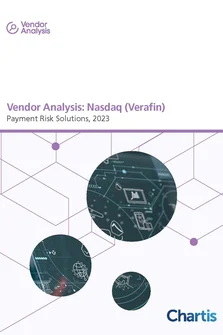<p>Progress towards full BCBS 239 compliance has been slow. The principles-based approach of BCBS 239, coupled with the current lack of compliance benchmarks means that banks are unsure of what exactly “good looks like” in their particular case, and this will differ for each bank. Further problems have been encountered regarding data governance and implementing risk data aggregation systems. The result of this is that no banks were fully compliant on the 1 January 2016 deadline, and since then, progress has remained slow. That no banks were compliant with the BCBS principles has increased the pressure for them to achieve this as quickly as possible; this compliance-focused approach will not see the full operational and best practice benefits that BIS intended.</p>
<p>Very little explicit feedback has been heard from the Basel Committee concerning BCBS 239 since the deadline was not reached. There is no mention of BCBS 239 in either the ‘Tenth progress report on the adoption of the Basel regulatory framework’, or any of the ‘Regulatory Consistency Assessment Program (RCAP), Assessment of Basel 3 G-SIB framework and review of D-SIB frameworks’ reports (save for a brief mention in the report for Japan). This may be due to the slow progress of banks to implement BCBS 239, or that national supervisors are unsure about how to measure compliance for the principles without benchmarks or examples of successful implementation.<br />
Most likely the observations are pragmatically contained within the analysis and reports of various regional stress testing initiatives.</p>
<p>This report focuses on the current implementation status of BCBS 239 by systemically important banks, and explores the potential reasons behind the current lack of progress. It also looks at the lack of feedback from the Basel Committee concerning BCBS 239, and reasons for banks to ensure they address the BCBS 239 principles.</p>
Only users who have a paid subscription or are part of a corporate subscription are able to print or copy content.
To access these options, along with all other subscription benefits, please contact info@risk.net or view our subscription options here: http://subscriptions.risk.net/subscribe
You are currently unable to print this content. Please contact info@chartis-research.com to find out more.
You are currently unable to copy this content. Please contact info@chartis-research.com to find out more.
Copyright Infopro Digital Limited. All rights reserved.
As outlined in our terms and conditions, https://www.infopro-digital.com/terms-and-conditions/subscriptions/ (point 2.4), printing is limited to a single copy.
If you would like to purchase additional rights please email info@chartis-research.com
Copyright Infopro Digital Limited. All rights reserved.
You may share this content using our article tools. As outlined in our terms and conditions, https://www.infopro-digital.com/terms-and-conditions/subscriptions/ (clause 2.4), an Authorised User may only make one copy of the materials for their own personal use. You must also comply with the restrictions in clause 2.5.
If you would like to purchase additional rights please email info@chartis-research.com


